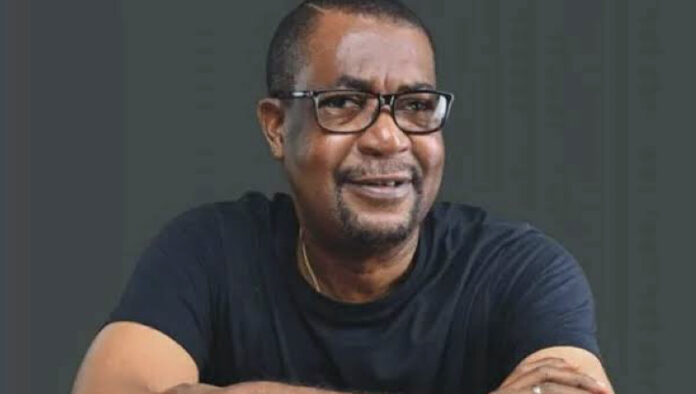A Federal High Court in the Federal Capital Territory (FCT) has given the Economic and Financial Crimes Commission (EFCC) permission to amend the charges against former Minister of Power, Dr. Olu Agunloye, in a high-profile case involving an alleged N6 billion fraud.
Dr. Agunloye, who served in the administration of former President Olusegun Obasanjo, is being prosecuted by the EFCC for allegedly engaging in corrupt activities related to the Mambilla Hydroelectric Power Station project in Taraba State. The project, which is one of the most ambitious power sector initiatives in Nigeria, has been marred by accusations of financial mismanagement and corruption since its inception.
The former minister is facing a seven-count charge, which includes allegations of forgery, disobedience to a presidential order, and corruption in connection with the Mambilla power plant. According to the EFCC, Dr. Agunloye is accused of awarding a contract for the construction of the 3,960 megawatt Mambilla Hydroelectric Power Station to Sunrise Power and Transmission Company Limited in 2003, without any budgetary provision, approval, or cash backing.
Furthermore, the commission alleges that suspicious payments were made by Sunrise Power to accounts linked to the former minister, raising concerns about potential kickbacks or financial impropriety. Dr. Agunloye, however, has pleaded not guilty to the charges.
On Thursday, January 23, 2025, Justice Jude Onwuegbuzie, presiding over the case at the FCT High Court, ruled in favor of the EFCC’s request to amend the charges. The prosecution had filed a motion to amend the charge on June 25, 2024, but the defendant’s legal team objected, claiming that the amendment was an overreach and an attempt to undermine Dr. Agunloye’s defense.
In his ruling, Justice Onwuegbuzie emphasized the court’s discretion to allow amendments to charges at any point before judgment is delivered. He noted that such amendments are allowed under Sections 216 and 217 of the Administration of Criminal Justice Act (ACJA) 2015, which gives the prosecution the right to amend charges during the trial process, provided the changes do not prejudice the defense.
Justice Onwuegbuzie addressed concerns raised by Dr. Agunloye’s legal team, which argued that the amendments were unfair and could negatively impact the defendant’s ability to mount a defense. The defense, led by Senior Advocate of Nigeria (SAN) Adeola Adedipe, also challenged the inclusion of Leno Adesanya’s name in the amended charge, citing a court ruling that had granted certain rights to Adesanya under Nigerian constitutional law.
Despite these objections, the judge ruled that the amendment was not intended to unfairly disadvantage the defendant. “The stage at which the prosecution is amending the charge still gives the defendant an opportunity to put up his defense,” Justice Onwuegbuzie stated. “The matter is still at the stage of examination in chief of the prosecution. The matter is yet to get to the defense stage,” he added.
The court’s decision means that the EFCC will be able to proceed with the amended charge against Dr. Agunloye, who is expected to face a re-arraignment on February 3, 2025. The prosecution, led by Abba Muhammed SAN, had argued that the amendment was necessary to ensure the charge accurately reflected the evidence at hand.
In response to the court’s ruling, the defense counsel, Adeola Adedipe, argued that the prosecution had failed to provide solid reasons for the amendments, suggesting that the changes were an attempt to frustrate Dr. Agunloye’s defense. Adedipe also questioned the inclusion of Leno Adesanya, whose name had been brought into the case following a judgment by Justice Inyang Ekwo of the Federal High Court, Abuja.
However, Justice Onwuegbuzie disagreed with the defense’s arguments and granted the EFCC permission to amend the charge, allowing the prosecution to move forward with its case. The judge also noted that the prosecution had adhered to the provisions of the ACJA and that the defendant’s right to a fair trial had not been compromised.
The Mambilla power project, which has faced numerous delays and cost overruns over the years, is considered a critical component of Nigeria’s efforts to boost its power generation capacity. The project is expected to play a key role in addressing the country’s ongoing electricity supply challenges. However, the allegations of corruption and financial mismanagement have cast a shadow over its future.
The EFCC’s decision to pursue charges against Dr. Agunloye comes amid growing concerns about corruption in Nigeria’s power sector. The country has long struggled with inadequate electricity supply, and many have pointed to mismanagement and corruption as key factors hindering progress in the sector. The EFCC’s investigation into the Mambilla power project is seen as a test case for the government’s commitment to tackling corruption in the energy sector.

